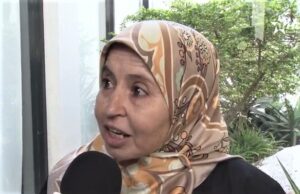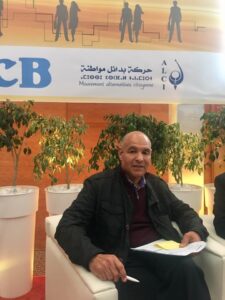People with handicaps limiting their mobility face challenges in countries that don’t produce many accessibility devices. In Morocco, people who try to buy assistive devices from other countries have faced an additional, financial challenge: The purchases were taxed like commercial imports even when they were handled by a nonprofit organization. Customs fees and taxes added 30% to the cost of an electric wheelchair or a car adapted for disabilities. “Some people were just unable to pay it, because the customs clearance was very difficult. The system was unworkable,” said Ahmed Aidani, who leads the nonprofit White Dove Association for the Rights of People with Disabilities.
The wheelchair fees were just one aspect of Morocco’s financial regulations that burdened nonprofits, also known as civil society organizations or CSOs. Although Morocco’s 2011 constitution calls for civil society to play a greater role in public life, a study by the Moroccan Association for Solidarity and Development (AMSED) supported by USAID concluded that “the nonprofit sector still suffers from multiple legislative, administrative, fiscal and public access constraints” posed by rules that are “repressive” rather than encouraging. For example, Morocco’s tax code provided no deduction to encourage the public to make charitable donations to nonprofits.
Individual CSOs had appealed for changes for years with little result. Starting in 2017, USAID helped Moroccan civil society raise the issues in a comprehensive, targeted way that achieved concrete changes. AMSED invited the White Dove Association and three other CSOs from around the country – Ennakhil Association for Women and Children, Ezzahra Forum for Moroccan Women, and the Alternative Citizen Movement – to launch a broad and deep campaign. The five organizations acted as intermediaries, reaching out in their regions to recruit smaller local organizations. Their informal network quickly grew to 1,000 organizations under the banner of the Moroccan Initiative for the Reform of Laws on Associations, or MIRLA.

“The Moroccan legislator must take into account the nonprofit nature of associations and put at their disposal the necessary motivations to allow them to play their roles fully.”
Aziza Bekkali, Ezzahra Forum for Moroccan Women
USAID and Counterpart International, in partnership with the International Center for Not-for-Profit Law, provided technical assistance to MIRLA including training its leaders how to train others in advocacy. The partners assisted MIRLA in an evidence-based approach as they updated the study and held participatory meetings in multiple regions to hear the needs and requests of grassroots associations about the rules governing CSOs. To gain support from the public through the news media, MIRLA issued press releases and held press conferences and discussions.
MIRLA gathered the demands for reforms in a formal memorandum and presented it directly to five government ministers and key parliamentary committees. “The testimonies of the associations convinced all of them,” Aidani said.
In laws that took effect in 2019, assistive devices for people with handicaps are now declared tax-exempt. “This will support the independence of people with handicaps,” Aidani said. The 2019 tax law for the first time allows private-sector companies to deduct donations to a qualifying nonprofit of up to 0.2 percent of gross revenue. The deduction has the potential to sharply increase the funding available to civil society.
As Moroccan civil society seeks to fulfill the role made possible by the new constitution, MIRLA intends to press on with more of the reforms on its list. “The establishment of a legal and fiscal framework in harmony with the provisions of the 2011 constitution is an urgent need for social development on our part,” said AMSED President Mbarek Moghli. A top demand is for the government to initiate “participatory budgeting,” in which citizens influence the government’s process of allocating state resources.
In a sign of the group’s success in engaging with government, the spokesman for the Moroccan government, Mustapha El Khalfi, appeared at the press conferences and called MIRLA “the most original model of civil society in our country.” El Khalfi added, “There is a movement. Results are starting to appear. And we must continue to work to make these years the years of reform for the tax system for associations.”





